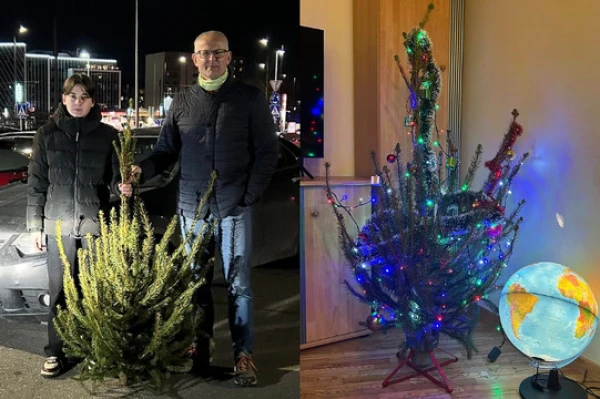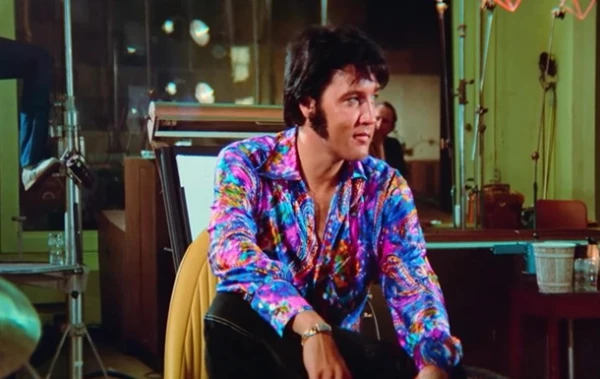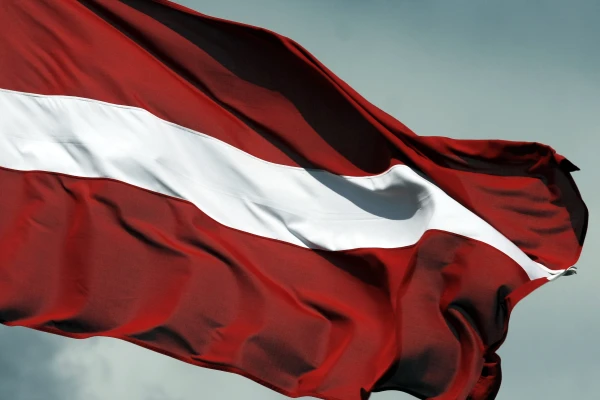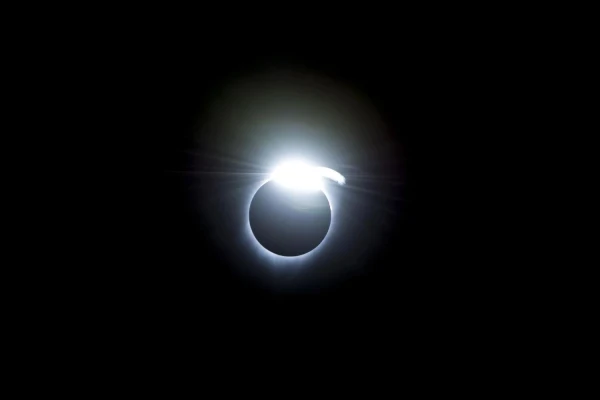
“I wake up, run, call, scream in the woods on the phone, have lunch, jump in the pool — and keep working. It’s perfect.”
30-year-old oil trader Christopher Eppinger resold nearly $2 billion worth of oil from 2022 to 2025 and made a net profit of over €216 million, writes The Financial Times. Among dozens of traders who profited from the changes in the global oil supply from Russia, he is almost certainly the youngest, having started trading at the age of 27.
Eppinger was born in 1994 to parents from the USSR in a small town near Hamburg, where he later studied business. By the age of 21, he secured an internship at KazMunayGas, and at 23, on the orders of the head of the Hamburg trading firm Select Energy, he went to Kazakhstan to build a business in oil refining, managing $1 million.
After the war began, Western companies — BP, Shell, and the largest private traders — curtailed or sharply reduced their operations with Russia. Instead of a complete embargo, the West imposed a price cap. This left Russia with some export opportunities but limited revenues. Eppinger acknowledges that it was the cap mechanism that made his business possible. "If there had been a complete embargo, I wouldn’t be doing this — then I would be a criminal," he says. The young oil trader claims that all transactions of his company CE Energy complied with Western sanctions, and in February 2025, trading in Russian oil was halted. But his path shows that sanctions provide room for maneuver if one knows how to work with them.
Since 2021, he moved to a small trading house in Dubai, where he also worked with the Uniper refinery in Fujairah, which imported African oil and Russian low-sulfur fuel oil. After the invasion of Ukraine, Germany banned Uniper from working with its old Russian supplier, and Eppinger saw an opportunity to offer an alternative — he supplied oil in small batches through Mercantile & Maritime Group (M&M), through which he earned his "first million."
He didn’t need much money. Most foreign banks refused to conduct transactions with Russia, and Russian suppliers began to sell oil on credit. This opened the way for small companies like CE Energy, which controlled multimillion-dollar fuel batches without their own working capital and earned through mediation. The trader always found a way out of difficult situations. Once, Uniper refused to accept 98,000 tons of fuel oil loaded in Russia, citing suspicions that it was of Russian origin. Eppinger found himself owing his supplier nearly $100 million. The vessel was idle, burning tens of thousands of dollars daily. Only the intervention of lawyers from Latham & Watkins and the documents they prepared regarding the cargo's origin saved the deal.
Eppinger learned his lessons: direct supplies to Uniper were too risky. He switched to operations through Dubai's Tejarinaft, which supplied fuel oil after "blending" in the UAE, providing it with certificates recognized by Western lawyers. CE Energy sold tens of thousands of tons of fuel oil to Uniper and Vitol, who received a blend with Russian petroleum products. Other batches were passed off as produced or blended in the UAE, China, or Malaysia. According to CE Energy's lawyers, origin verification was not mandatory: a certificate recognized by another state was sufficient.
Since February 2023, the price cap on petroleum products became the new norm, and Eppinger emphasizes that each cargo with a Russian certificate from CE Energy was sold strictly below the cap — this is confirmed by documents provided by his lawyers. From 2022 to 2025, CE Energy sold 3.3 million tons of oil and petroleum products to clients in Nigeria, Spain, the Bahamas, China, the UAE, Malaysia, and Brazil. In Brazil, CE Energy supplied Russian diesel fuel to Raízen (partly owned by American Shell). Another Western company, Vitol, received hundreds of thousands of tons of fuel oil from CE Energy, some directly from Russian ports.
Currently, the entire business of the oil trader consists of himself and his phone's address book. He works remotely, with only a few employees, and his main "office" infrastructure is his iPhone. He never touches a computer and concludes deals, argues with lawyers, negotiates, and coordinates literally "from his phone." "I wake up, run, call, scream in the woods on the phone, have lunch, jump in the pool — and keep working. It’s perfect," he describes his lifestyle in a villa near Cannes worth €14 million. He has acquired expensive real estate and is soon considering buying an island in the Arab Emirates.
Eppinger halted his business in early 2025 when the Biden administration announced sanctions against several Dubai traders. This was a signal that the price cap mechanism no longer guaranteed safety. "I’m not ashamed," he says. "Everything was within the law. The source of my income is Russian oil, and I don’t hide it." Now he hopes to obtain credit lines and take the company "to the next level." "I don’t trade better than a trader from Vitol. But I use my connections more effectively," Eppinger sums up.













